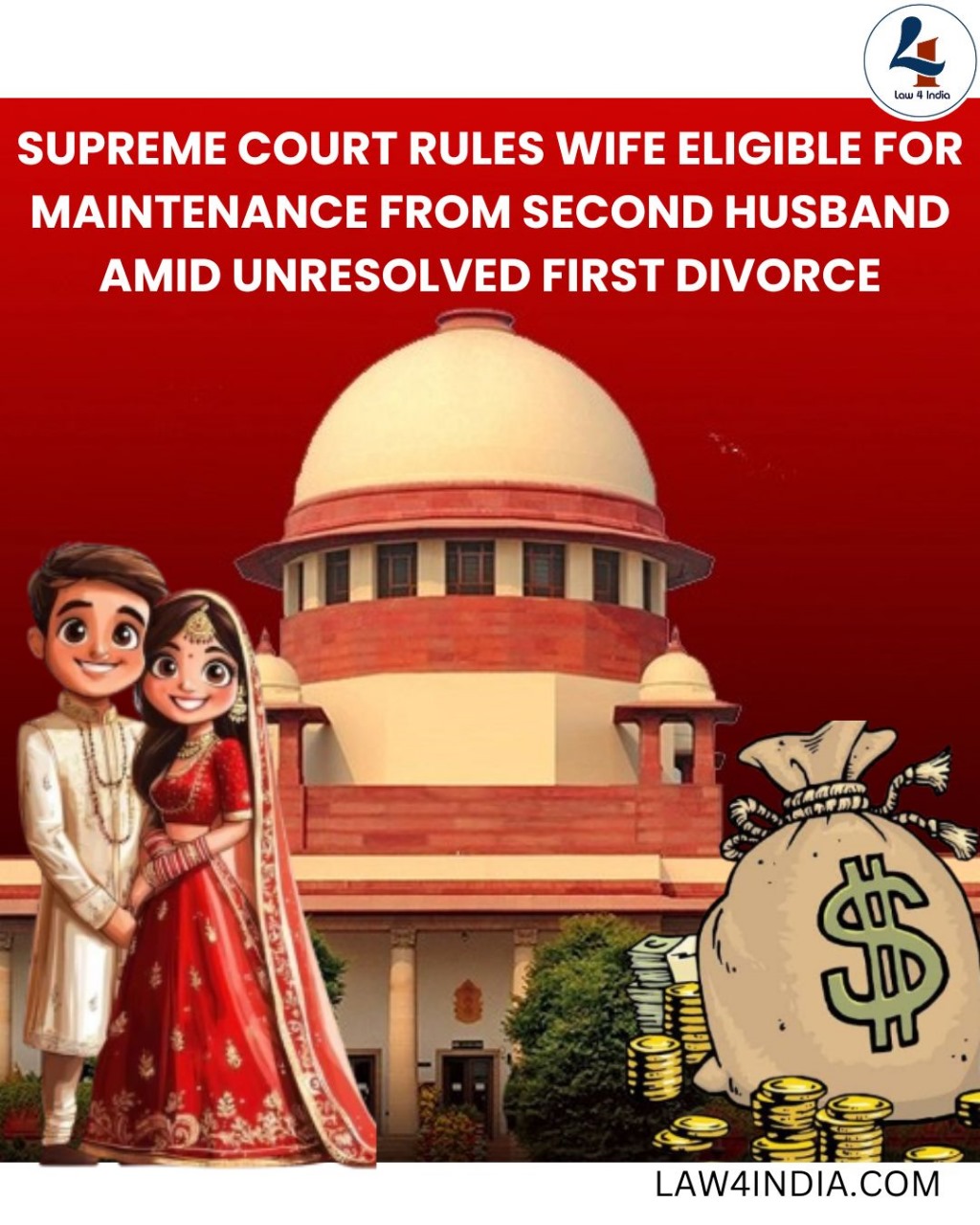By Vironica Khanna
In a groundbreaking decision, the Supreme Court of India has reaffirmed a wife’s right to maintenance, even in cases where her marriage is legally void. The ruling, delivered by a bench of Justice B.V. Nagarathna and Justice Satish Chandra Sharma, interprets Section 125 of the Code of Criminal Procedure (CrPC), now replaced by Section 144 of the Bharatiya Nagarik Suraksha Sanhita (BNSS). The judgment brings clarity to complex marital disputes and emphasizes the duty of a husband to provide for his spouse, regardless of legal technicalities.
The Story Behind the Case:
The matter arose from an appeal before the Apex Court involving Appellant No. 1 who had first entered into a wedlock in 1999. A son was born from their wedlock in 2000. However, marital disputes emerged a year later , leading to the couple’s separation after returning from the US. The parties executed a Memorandum of Understanding (MoU) to formally dissolve their maritial relationship.
In the same year(2005) Appellant No.1 married the Respondent (Husband). However, initially this marriage was called null and void by Family Court, Hyderabad in 2006,on the grounds her first was still legally valid.
Despite this setback the couple re-married again in the same year (2006) and the wedlock was duly registered with Sub-Registrar in Hyderabad. From this wedlock a daughter named Venkata Harshini was born.
In the year 2008 dispute and quarrels resurfaced leading to the separation of the couple. In subsequent of it Appellant no 1 (wife) filed multiple criminal complaint against the Respondent (Husband) and other family members.
The Family Court in response granted Rs. 3500 maintenance to the Appellant No.1(Wife) and Rs. 5000 maintenance to the Appellant No.2 (Daughter). The High Court in response to the criminal revision petition upheld the maintenance for daughter but set aside maintenance of the wife. Aggreived by the decision, the matter was appealed before the Apex Court.
Key Observation by the Hon’ble Supreme Court
The Apex Court meticulously examined the facts and the leagl arguements presented. Court Observed that the Husband sought to nullify the wife’s right to maintenance, contending that their marriage was void as her first marriage continue to be in effect at the time of their marriage.
The Court made Pivotal Observation:
1. No Concealment of Facts: The Court emphasized that this was not a case where matterial facts were concealed from the Respondent (Husband) . Respondent was fully aware of the circumstances before Appellant No. 1’s marriage and the subsequent attemp to dissolve it.
2. Legal Significance of MoU: However, the MoU executed by Appellant No. 1 and her first husband does not constitute a decree of divorce but it indicates that a parties had mutually decided to dissolve their marriage and were living separately.Thus, the Court noticed wife does not derive any legal rights from her first husband.
The Court also addressed the concern of dual maintenance, citing that it is not the case in present facts.
Court Intrepretation of Sec 125CrPC
The Court also addressed the purpose of Section 125 CrPC, stressing that it’s not just a benefit for women but a legal obligation for husbands to ensure their wives’ basic needs are met. The provision is designed to prevent destitution and protect the dignity of dependents, especially when marriages break down.
Final Decision
The Supreme Court ruled in favor of the wife, granting her the right to maintenance. The judgment highlights that even if a marriage is declared void, the husband’s responsibility to provide for his spouse remains intact, especially when the couple has lived together and had children.
This verdict is a significant step forward in protecting the rights of women in complex marital situations. It sends a clear message that legal technicalities, such as the validity of a marriage, shouldn’t leave women and children without financial support. The ruling also underscores the importance of transparency and mutual agreements in relationships, as seen in the MoU signed by the wife and her first husband.
Why is it Important?
Previously, a woman couldn’t seek maintenance from her second husband if her first marriage was not legally dissolved. Now through this case women is entitle to receive maintenance from her second husband despite undissolved first marriage with certain conditions. However, this new ruling has established a fresh legal precedent.
Case Title: Smt. N Usha Rani and Anr v. Moodudula Srinivas (2025).

